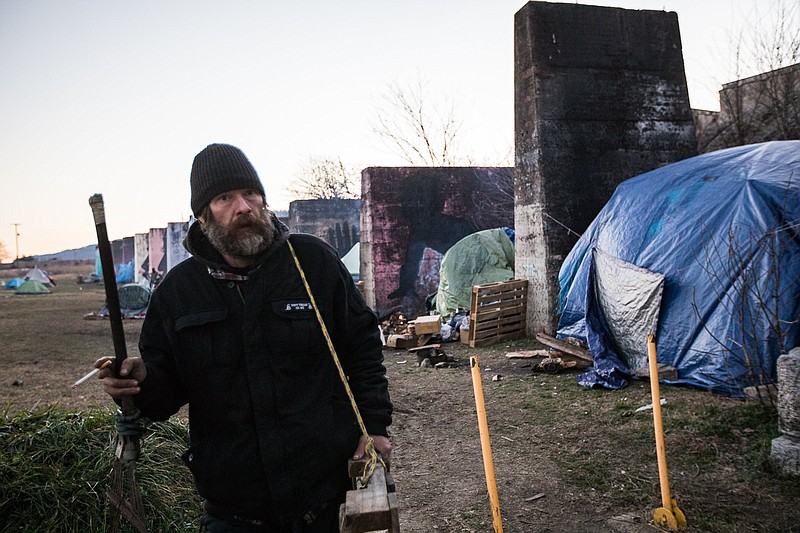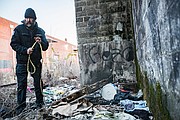The Chattanooga Regional Homeless Coalition is conducting its annual count this week with leaders expecting to see an increase in the number of area residents who are homeless.
Agencies across the nation conduct the mandated Point-In-Time Count every January, but the ongoing COVID-19 pandemic has changed the way local advocates are conducting it. Instead of using volunteers, staff from various homelessness agencies will do all the work and, instead of a one-day count, the groups will work all week in an effort to get an accurate measure.
Wendy Winters, executive director of the Chattanooga Regional Homeless Coalition, said the group expects to see an increase in the number of people without shelter because of the pandemic. The coalition, which serves Hamilton County and 10 surrounding counties, reported a 150% increase in calls to its hotline compared to 2019, and the economic impacts of the coronavirus have left many families feeling unstable.
In April 2020, more than 33,300 Southeast Tennessee residents filed for unemployment. While the federal government issued and extended a moratorium on evictions, Winters said people are still being pushed from stable housing, especially those living with friends or family who do not have a formal lease.
"There's not enough low-income housing to go around," Winters said. "Even when we have dollars to house people, we often have a hard time finding a unit in which to use those dollars."
The pandemic has slowed the process for providing housing or help for some agencies. Tent encampments have grown and the coalition is seeing changing demographics among people experiencing homelessness in Chattanooga.
"Normally we have a male majority in our homeless population, but here recently we've noticed a trend where it's becoming more of a 50/50," said Dylan Green, an outreach worker for the coalition. "We're assuming that women typically hold jobs that during the pandemic were cut real fast."
The U.S. Department of Housing and Urban Development requires the count each year. In 2020, the coalition reported 648 people either in emergency shelters, transitional housing or unsheltered, with 114 of them being children under age 18. Data from this year will not be available for about a month.
The coalition will be handing out sleeping bags and tents it received as donations from area groups, including churches. Winters and Green thanked the community for helping support their work, especially in ways that help people stay safe from COVID-19.
Advocates across the country feared major outbreaks of the coronavirus in homeless communities since many of those people are older and have pre-existing conditions, such as hypertension and respiratory illness, that put them more at risk for a severe case if infected. While there have been some small clusters, many cities have not experienced the kinds of case rates many predicted.
Green said that while the coalition can conduct the count with staff, using volunteers often provides a chance for people to learn about homelessness.
"It's a good icebreaker for people who don't understand what homelessness might be or what it can look like," Green said.
Contact Wyatt Massey at wmassey@timesfreepress.com or 423-757-6249. Follow him on Twitter @news4mass.

